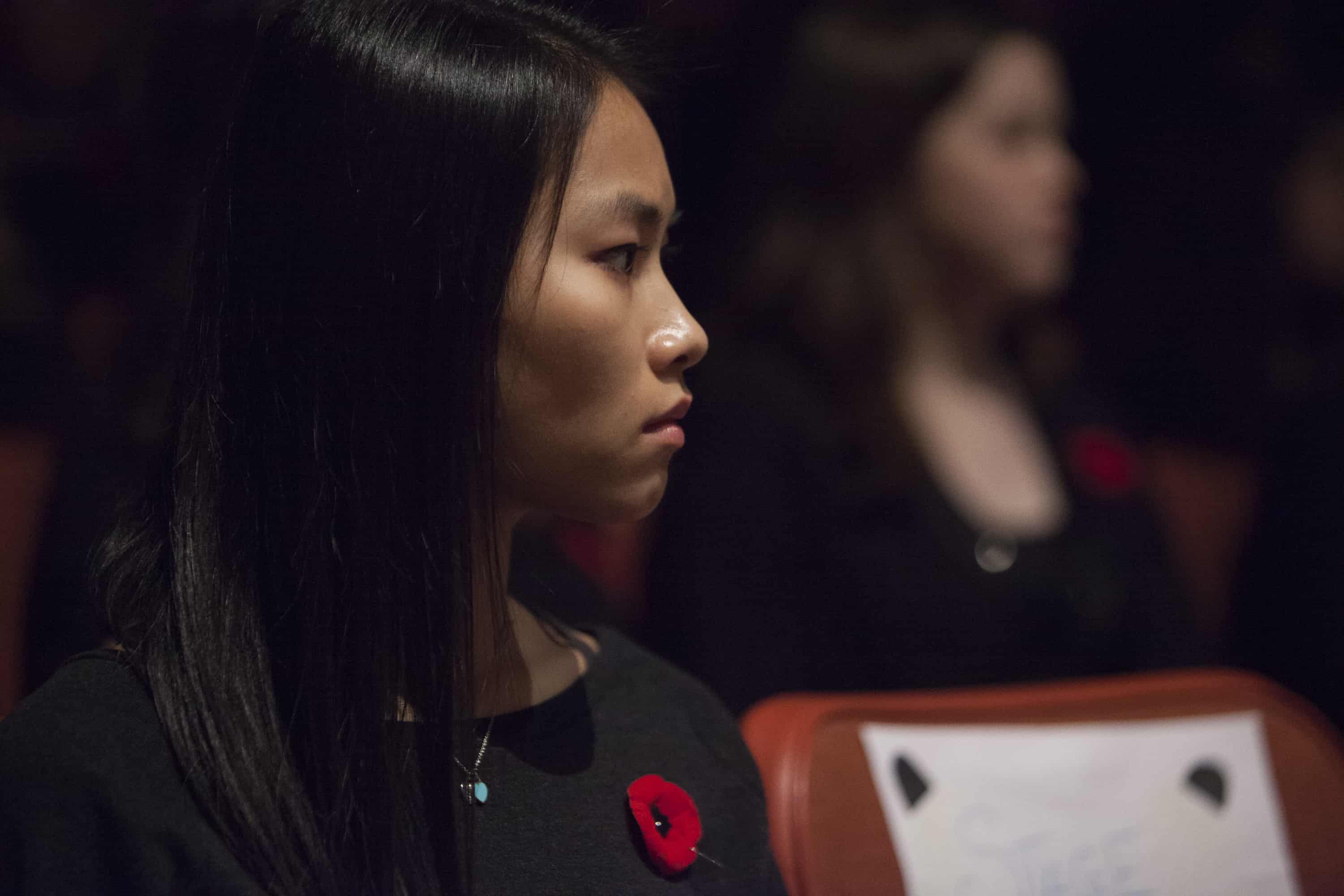As I have grown older, I’ve become increasingly ambivalent about Remembrance Day. That is not to say I take issue with setting aside a day to remember and contemplate those who risked everything in the name of what they thought was right.
But Remembrance Day as it is observed today has little to do with such contemplation. There is no room for questions about whether what our progenitors fought and died for was indeed right and just. Consequently, Remembrance Day has become nothing more than a time for uttering platitudes soaked in ardent nationalism and blind veneration of military force.
[pullquote-features]Remembrance Day as it is observed today has little to do with such contemplation.[/pullquote-features]
I witnessed one of these unabashed displays in Kingston a few weeks ago, although ceremonies similar in tone and substance took place nationwide. The Master of Ceremonies stood in front of the crowd and loosely recited, with much conviction, a few stanzas of Charles Province’s poem, Solider. “It is the Soldier, not the reporter, who has given us freedom of the press. It is the Soldier, not the poet, who has given us freedom of speech. It is the Soldier, not the campus organizer, who has given us freedom to protest. It is the Solider, not the lawyer, who has given us the right to a fair trial.”
Then came the bishop, who admonished us to pray for the men who died so that we may live, and who died in the name of some sort of holy “truth and righteousness.” We were to pray for men who took life, and who in turn had theirs taken, all with God on their side.
I found this disappointing, but hardly surprising. What profoundly disquieted me was that these statements were put forth to a crowd that included several elementary schoolchildren. I couldn’t help but think that these children would grow up actually believing that all our freedoms were won at gunpoint; that the actions of journalists and poets and protesters and lawyers are deservedly secondary to the actions of soldiers; and that it would be wrong to suggest otherwise.
When the moment of silence came, my thoughts turned to the men who served in the World War I. Many of them were younger than I am now when they went to war. I thought of how they had been duped by their leaders, tricked into going off to fight for freedom only to be slaughtered in the mud of some foreign land. Few Canadians had the courage or the decency to warn these men that they were dying for nothing, and those few that did find their honest voice were met with swift and severe ‘patriotic’ backlash. To question whether the war was just had risen to the level of heresy and slander — and I can scarcely imagine it being much different a century later.
Perhaps my discomfort is best summed up in the book Warrior Nation by Ian McKay and Jamie Swift. It is worth reading at length, but one of its major themes can be paraphrased as follows: When we make every soldier into a hero, we make all of their actions heroic, and the result is that we find ourselves unable to debate the merits both of past wars and of sending our armies into combat again.
[pullquote-default]Few Canadians had the courage or the decency to warn these men that they were dying for nothing, and those few that did find their honest voice were met with swift and severe ‘patriotic’ backlash.[/pullquote-default]
Thinking back to the schoolchildren, we hope they will become tomorrow’s active participants in democracy. But by consistently telling them that freedom is always born out of violent conflict, and by giving them such a peremptorily one-sided picture of how war, nation, and freedom are intertwined, we do them a significant disservice. We make democratic participation more difficult for them, and consequently, their contributions become less likely. And in consistently feeding the same lines to adults, we essentially do the same, for we circumscribe the important discussions we ought to now be having.
Nick Papageorge is a second-year student at the Faculty of Law.


